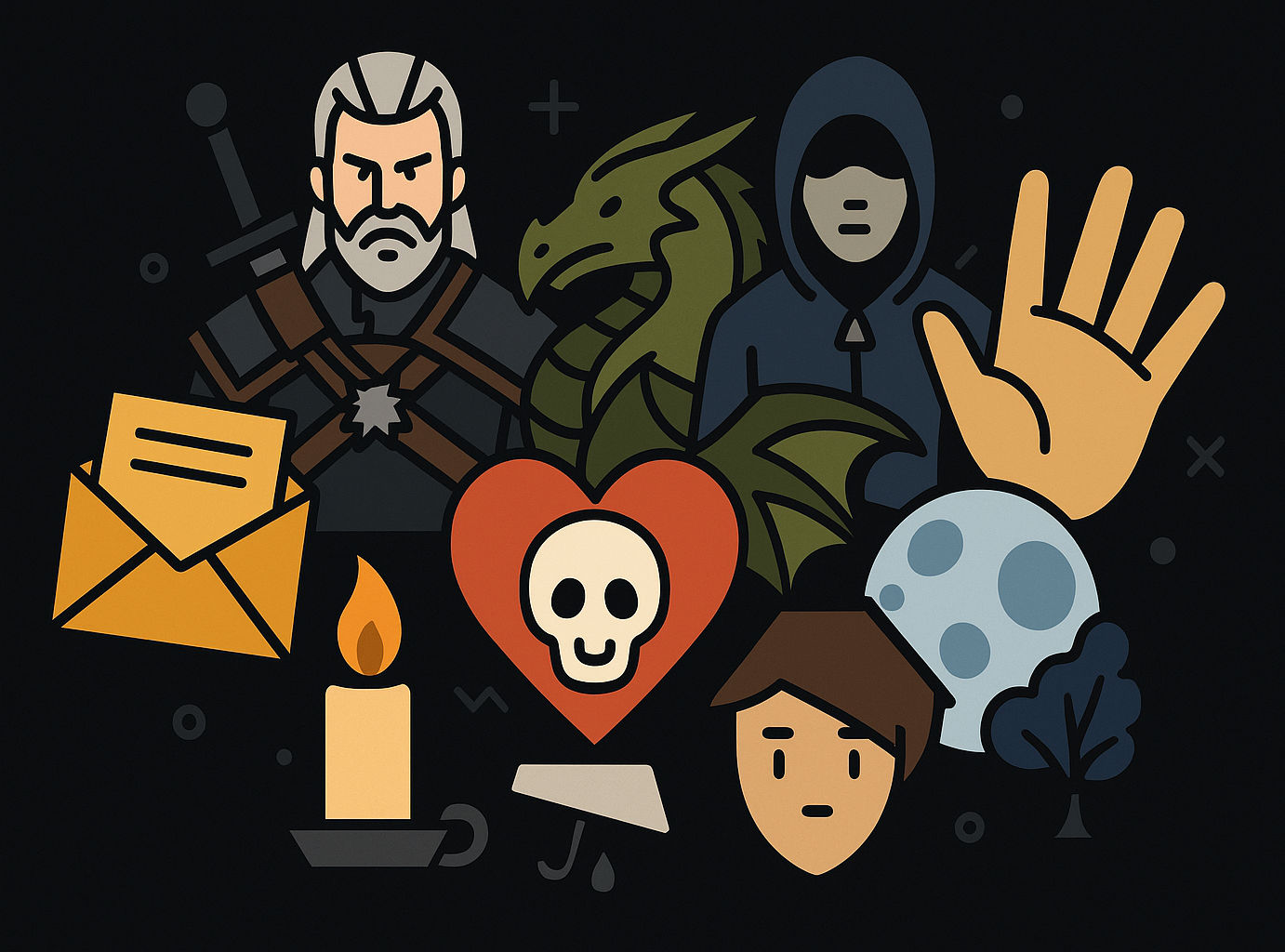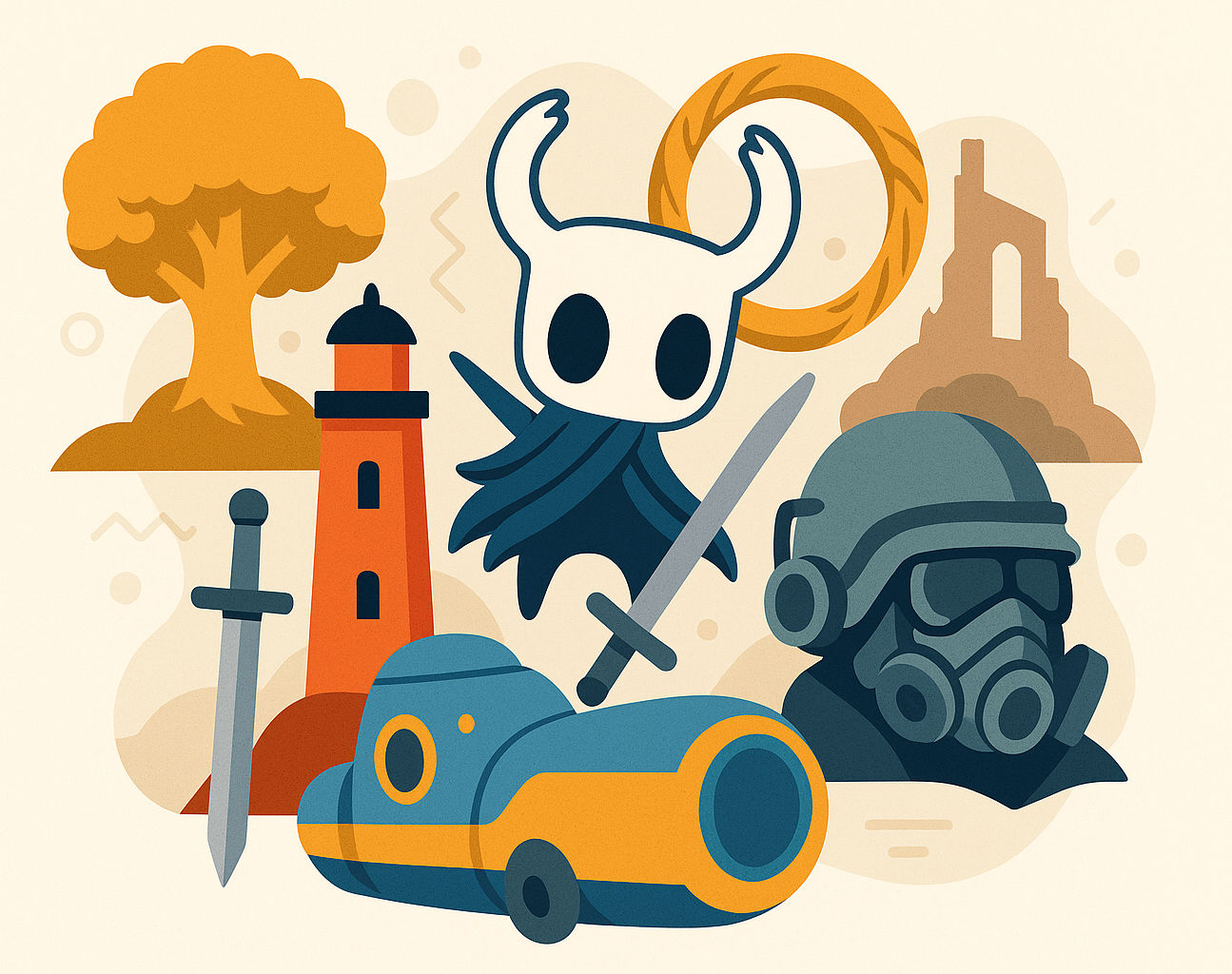Top 10 Games That Defined the 2020s
July 7, 2025
As the 2020s unfold, the gaming landscape continues to evolve at an astonishing pace. With powerful hardware, boundary-pushing creativity, and the rise of social connectivity, the current decade has already produced some truly transformative titles. These aren’t just well-made games—they’re defining moments in modern video game culture. They set new standards for innovation, storytelling, and immersion while reshaping what gamers expect from the medium itself.
The impact of the COVID-19 pandemic early in the decade accelerated digital connection and gaming adoption worldwide. This led to unprecedented growth, more diverse audiences, and increased demand for games that offered both escapism and social engagement. From massive open worlds and emotionally resonant narratives to genre-bending multiplayer experiences, the best games of the 2020s are reshaping entertainment for a new generation.
In this list, we’re highlighting ten games that didn’t just achieve critical or commercial success—they helped define what the 2020s are all about. These titles introduced bold mechanics, revolutionized genres, influenced developers, and deeply resonated with players. Whether through visual storytelling, cultural relevance, or groundbreaking technology, these are the top 10 games that shaped the decade—and the ones that future generations will remember as milestones.
10. Tears of the Kingdom (2023)

As the sequel to the groundbreaking Breath of the Wild, The Legend of Zelda: Tears of the Kingdom had high expectations—and exceeded them. Building upon the open-world mechanics, puzzle-solving, and player creativity of its predecessor, the game introduced new tools like Ultrahand and Zonai devices that allowed for unprecedented levels of interaction.
Sky islands, underground realms, and vertical traversal expanded the map both spatially and mechanically. The narrative added emotional depth with returning characters and new mysteries, while the physics-based gameplay remained at the core of player experimentation.
Tears of the Kingdom further cemented Nintendo’s legacy for innovation, offering one of the most open-ended and rewarding sandbox experiences in gaming. It redefined what sequels can achieve and became an instant classic in the Zelda canon.
9. Microsoft Flight Simulator (2020)

Microsoft made a stunning return with its 2020 reboot of Flight Simulator, a game that blended real-world satellite data, AI, and detailed aircraft simulation into one of the most realistic gaming experiences ever created. Whether flying over your hometown or exploring distant continents, the game delivered a sense of scale and authenticity unmatched in the genre.
Thanks to Azure-powered real-time weather, photogrammetry cities, and a robust physics engine, the game became a technological showcase for the Xbox Series X|S and modern PCs. It wasn’t just for aviation fans—it appealed to explorers, educators, and travelers stuck at home during the pandemic.
Microsoft Flight Simulator redefined simulation gaming, offering an awe-inspiring window into the world and proving that technical realism could be both accessible and engaging.
8. Baldur’s Gate 3 (2023)

Baldur’s Gate 3, developed by Larian Studios, took the classic CRPG formula and elevated it with modern technology and Dungeons & Dragons 5th Edition mechanics. With deep character customization, turn-based tactical combat, and one of the most reactive narratives in gaming, it became the gold standard for role-playing games.
The game features branching storylines, romance options, party dynamics, and fully voiced characters in a sprawling fantasy epic. Every decision matters, and no two playthroughs are the same. Whether playing solo or in co-op, Baldur’s Gate 3 is a masterclass in player agency and narrative depth.
It also demonstrated that single-player RPGs are far from dead. Its success shattered expectations for what “niche” games could achieve, and it quickly rose to the top of many Game of the Year lists. It’s a landmark title that will be remembered for decades.
7. Among Us (2018, Popularized in 2020)

Although released in 2018, Among Us exploded into popularity in 2020, becoming a viral sensation during the pandemic. Its simple premise—find the impostor among a crew—combined social deduction with hilarious chaos. Streamers, content creators, and celebrities embraced it, turning it into one of the most popular party games of the 2020s.
The game’s success was due to its accessibility, low hardware requirements, and social gameplay. It created memorable moments of betrayal, trust, and deception, all in short, replayable rounds. Voice chats, memes, and YouTube compilations fueled its viral growth, cementing its place in pop culture.
Among Us redefined online social gaming, paving the way for casual party titles in the digital space. It also proved that small indie games could find global success years after launch if the conditions are right.
6. Cyberpunk 2077 (2020, Revisited in 2023)

After a disastrous launch in 2020, Cyberpunk 2077 became the poster child for broken promises—but its story didn’t end there. CD Projekt Red spent years fixing bugs, optimizing performance, and releasing substantial updates, culminating in the acclaimed Phantom Liberty expansion in 2023. The transformation turned a cautionary tale into a comeback story.
Set in the neon-drenched Night City, Cyberpunk offered an immersive open world filled with branching quests, cybernetic upgrades, and philosophical storytelling. Keanu Reeves’ portrayal of Johnny Silverhand added star power and emotional weight, while the 2.0 update overhauled combat, AI, and core systems. The result was a game that finally delivered on its vision.
Cyberpunk 2077 is a defining example of redemption in gaming, showing that long-term support and listening to community feedback can restore faith. It also marked a pivotal moment for the industry in discussions about hype culture, early access, and accountability.
5. Hades (2020)

Developed by Supergiant Games, Hades is a rogue-lite action game that turned genre conventions on their head. It delivered fast-paced combat, rich mythology, and a compelling narrative structure that evolved with each run. Rather than punishing failure, Hades rewarded it—advancing relationships, unlocking dialogue, and deepening the story with every death.
Set in the underworld of Greek mythology, players control Zagreus, son of Hades, as he attempts to escape his father's realm. Along the way, he interacts with gods like Athena, Dionysus, and Aphrodite, each offering unique power-ups called Boons. The gameplay is fluid, tactical, and endlessly satisfying, while the voice acting and writing give each character memorable depth.
Hades defined how narrative and replayability could coexist, earning Game of the Year awards and critical acclaim. It raised the bar for indie development and became a model for how smaller studios can create polished, genre-defining experiences. Its success helped mainstream the rogue-lite genre and inspired countless imitators.
4. Genshin Impact (2020)

Genshin Impact revolutionized the free-to-play model by offering a visually stunning, open-world action RPG experience with production values rivaling AAA titles. Developed by HoYoverse (formerly miHoYo), this anime-inspired game delivered deep combat mechanics, an expansive world, and a character-driven gacha system that proved wildly addictive.
Set in the lush world of Teyvat, players explore seven elemental nations, each with unique aesthetics, lore, and gameplay dynamics. With regular updates, seasonal events, and new characters, Genshin has maintained a strong, engaged global player base. The game’s success was unprecedented, especially for a mobile-first title, showing that free-to-play games can deliver rich, immersive content without compromising quality.
Genshin’s influence on game monetization, mobile development, and cross-platform play cannot be overstated. It redefined expectations for what mobile and free-to-play games can achieve, and it continues to thrive with a loyal fan base and expanding universe.
3. The Last of Us Part II (2020)

Bold, divisive, and emotionally devastating, The Last of Us Part II pushed narrative design in games to new extremes. Developed by Naughty Dog, this sequel to the 2013 classic took storytelling risks rarely seen in big-budget titles. Through its dual protagonists and themes of revenge, grief, and empathy, it forced players to confront their own assumptions and emotions.
Visually stunning and meticulously crafted, the game set a new bar for animation, voice acting, and environmental detail. The gameplay evolved from the original, with more fluid combat, improved AI, and expansive level design. But what truly defined the experience was the story—a polarizing tale that challenged the hero-villain binary and asked players to walk in their enemy’s shoes.
The Last of Us Part II is one of the most important narrative-driven games of the 2020s, sparking heated debate and deep analysis across the gaming world. Its ambition and emotional complexity have influenced countless developers and reaffirmed gaming as a mature storytelling medium.
2. Animal Crossing: New Horizons (2020)

Released at the onset of the COVID-19 pandemic, Animal Crossing: New Horizons became a beacon of comfort and creativity in uncertain times. As people around the world went into lockdown, this charming life simulation game offered a peaceful escape. Players could build their dream islands, connect with friends online, and enjoy slow, daily progress in a stress-free environment.
The game’s appeal lies in its simplicity and personalization. Decorating homes, arranging gardens, befriending quirky animal villagers, and trading turnips in the "stalk market" created a soothing loop of creativity and community. Nintendo’s charming art style and relaxing music added to the therapeutic effect, making it one of the most calming games of the decade.
Animal Crossing: New Horizons became a global cultural phenomenon, especially during a time when people craved connection. Its impact on mental health, social media, and virtual gatherings was immense. Players even hosted weddings, graduations, and talk shows in-game. This title didn’t just define a gaming trend—it defined a moment in world history.
1. Elden Ring (2022)

Few games have left as deep a mark on the 2020s as Elden Ring. Developed by FromSoftware and helmed by Hidetaka Miyazaki with lore contributions from George R. R. Martin, this open-world action RPG redefined what modern fantasy adventures could be. Combining the punishing combat of the Souls series with a massive, nonlinear world full of secrets, Elden Ring created a new standard for exploration-based design.
Set in the hauntingly beautiful Lands Between, players venture across sprawling regions, encountering grotesque creatures, discovering intricate dungeons, and unraveling fragmented lore. The open-world structure offered unprecedented freedom for a Souls-like game, allowing players to choose their own path, defeat bosses in any order, and truly feel like adventurers in a dark fantasy epic.
Elden Ring is a milestone in open-world game design, proving that mystery and challenge can coexist with accessibility and freedom. It inspired countless conversations, guides, theories, and speedruns—marking it as not just a game, but a cultural moment. For many, it’s already considered one of the greatest RPGs of all time, and it continues to influence game development well beyond its launch.
Final Thoughts
The 2020s have already produced an incredible variety of groundbreaking titles that reflect the ever-evolving nature of the gaming industry. These games that defined the 2020s did more than entertain—they pushed boundaries, fostered communities, and changed how we interact with virtual worlds.
From narrative risks and technological marvels to social experiments and design revolutions, these ten titles illustrate the depth and diversity of modern gaming. Each left a permanent mark on the industry, proving that innovation can come from anywhere—big studios, small teams, even resurrected disasters.
As the decade continues, these games will be remembered not just for what they did right, but for what they inspired. They represent the creativity, resilience, and vision that keep gaming at the forefront of entertainment and art. Whether you played them at launch or are discovering them now, these are the games that defined a generation.


